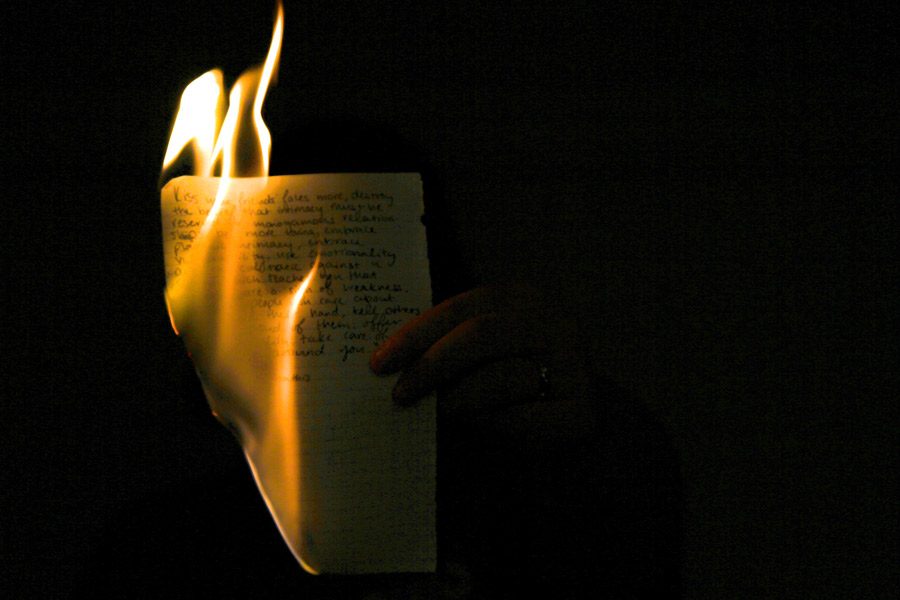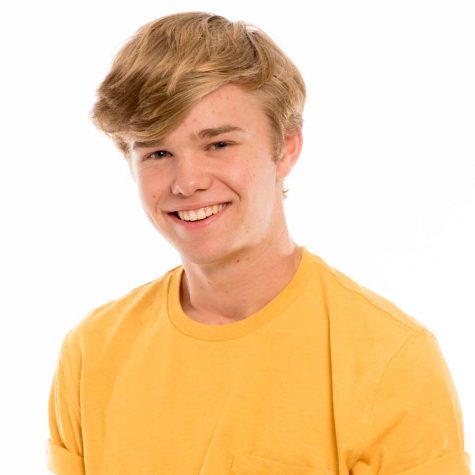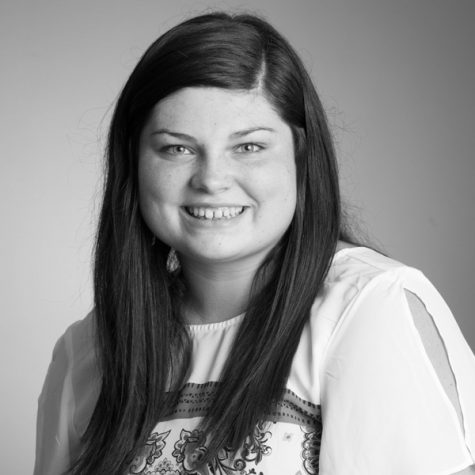Burn it
Student uses journals to cope with struggles
Photo by Emily Meinzer
Flames consume a page of her journal. She has kept a journal for all four years of high school to help her cope with her father’s alcoholism and her brother’s drug addiction.
November 16, 2016
She tears the ink stained page from her journal and holds it to her face. Look at the words. See that they are real. Understand that this happened.
Burn it.
She holds the flame under the corner of the paper. A coffee-stained circle begins to emerge, quickly turning black. The flame magnifies, climbing up the page, but she doesn’t let go. Look at the words. See that they are real. Understand that this happened.
Burn it.
When the fire comes alarmingly close to her fingers, she sets the darkness that was in that page free. The wind carries away the ashes, and in them are the liquor bottles that seemed plastered to her dad’s hand along with every angry threat her brother ever made when he was at his worst. The wind carries every mocking snicker and every judgmental glance.
No one is bothered. No one is burdened.
“When things were bad, I would mostly write silly stories and poetry about flowers which filled the four journals I have from my years of being in high school,” she said. “Sometimes I would write my darkest secrets because I loved how it made me feel to get it on the page. Then I would go back and burn the paper so no one else could read it.”
At a young age, her life began to fill with these dark pages before she had the capability to burn them to ashes.
“My dad was already an alcoholic when I was born. My mom died in a car accident when I was two, and my dad just got worse,” she said. ”That left my brother and me on our own. It’s always been just us since the beginning. We were like a duo.”
With the physical absence of her mother and the mental absence of her father, she had to rely heavily on her brother for support. Due to the fact that they had grown up looking out for each other, they developed a rare relationship that many siblings usually never discover until they are adults.
“One time we were at the lake, and I took off my floaties because I thought I was old enough to swim alone,” she said. “I started drowning, and my dad was passed out drunk on the beach, so my brother had to jump in and save me.”
Although her father was never really there for her, he was at least there. He was present. He was a parent. She had some memory of normal even if it was small. That all changed, however, the day the cops showed up at her camp site.
“I was 7. We were on a family vacation, and we were sitting on the hood of the car when the police came,” she said. “They said, “Your dad is in trouble,” and they arrested him. My brother said not to worry and that everything was gonna be fine. He said that he would be out in a week, but he didn’t get out for four years.”
After their father was taken away and they moved in with their grandparents, her brother had a bitter seed planted in him with the question of “Why me?” in the back of his mind. He became reckless under the influence of drugs and alcohol.
“When I was in fifth grade, my older brother started using drugs. It wasn’t bad at first, just like marijuana and of course alcohol, but when he was introduced to meth in ninth grade, he went crazy,” she said. “He was just always super angry at the world. He was angry that all of this was happening to him. He was much older than me, so he understood more of what was happening.”
While she was losing the one person who had always been there for her, she was simultaneously walking into the horror house of middle school, oblivious to the vultures that would circle overhead.
“My seventh grade year was the worst year of my life,” she said. “My dad had gotten out of prison, and my brother was hard on drugs. [My brother] got kicked out of my grandparent’s house because he would threaten to beat them up, and so he moved in with my dad, which only made things worse for [my brother]. On top of that, I was realizing I was into girls.”
At that time, the idea of liking girls meant the end of the world. It meant snickers as she walked by that people made sure she heard. It meant no one would want to be friends with her.
“Eighth grade year I told myself I wasn’t gonna like girls. I was gonna like boys, and so I became boy crazy trying to convince myself that I was normal,” she said. “I was making out with boys, and the entire time I was just thinking, “Be normal, be normal, be normal, be normal.” I wanted to be like everyone else. I wanted to have the same problems as everyone else. I wanted to worry about what I was going to wear, not if my brother was still on drugs or not.”
She hoped that in becoming this ideal middle school girl, she would be able to keep the snide comments and teasing at bay. However, a person can only walk in shoes that do not fit for so long before it becomes unbearable.
“I came out of the closet my sophomore year. People at school would say I was just doing it for attention and that it was just a phase. It wasn’t just adults either, it was from people that I had to see every day in class, and when they say that you are doing it just for attention, you really can’t argue with that because that in itself makes it seem like you are trying to draw attention,” she said. “It completely invalidated the thing I had struggled with for years.”
Although many ridiculed her for her decision to come out of publicly, her grandmother always stood by her side in her choices.
“My grandmother was there for me even when I did come out of the closet, and we are best friends now,” she said. “She always tells me that life is what you make it, and I think that so important because people are so negative and negativity is a choice.”
This advice from her grandmother began to change her entire outlook on the life she was living.
“I realized that I could determine how my days were going to be good or bad, so I made this decision to be positive. And not just to say I was positive that but to genuinely feel it in my soul,” she said. “I became captivated with the idea of being alive and being with people, and I just completely changed my outlook on life. My goal is to just make other people happy, and I thought maybe if I can make other people feel good then it would make me feel good and then it would in turn make my home life better.”
After she made peace with herself, she began to look back at the relationships with her brother and her father, the pages of her relationships she had begun to silently burned.
“My brother was a different person after the drugs, and it changed our entire relationship. We we hardly talked,” she said. “After, [he] got off the hard drugs, and he grew up, and he apologized to me for all the years he had made my life hell.”
While her brother did put himself out there to try to help to build back the bridge that his actions had burned, her father did not.
“I made the decision last year that before I graduate I was going to mend the relationship [with my father]. It’s sad that the kid has to make the decision when the parent will not admit to themselves that they did wrong, but I don’t want to live a life without my parents. I only have one left.”
No, her past was not that of an ideal childhood, but her positive approach allowed her to take what she was given and grow. Life isn’t about how how unfortunate or how picture perfect one’s past is; it is about how that person goes about making a future for themselves with what they are given. She learned to love the person she was, and in doing so, she developed a self confidence that is rarely found.
“Whatever they have to say doesn’t matter because I know me,” she said. “I’ve always known who I am, so whatever it is that people say can’t change me. I’m always going to be me.”
















